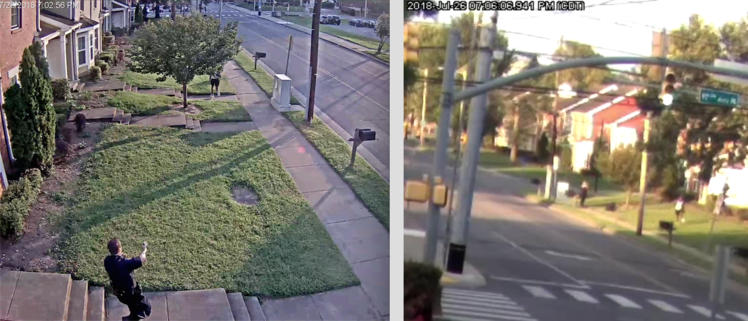
When Nashville’s District Attorney’s office decided to seek a bench warrant for the arrest of Officer Andrew Delke, charging him with criminal homicide for the fatal shooting of Daniel Hambrick, it put into play a more winding legal process.
It still needs to determine what type of homicide Delke will be charged with, if any.
“The big question is what sort of charge will come out of the grand jury,” says Jim Todd, a criminal defense lawyer and a former Assistant District Attorney in Nashville.
Delke was charged with criminal homicide, a term that encompasses a number of more specific homicide charges. For prosecutors to advance the case, they need to convince a grand jury that Delke’s actions fit one of those, including manslaughter, reckless homicide or premeditated first degree murder.
Todd notes there’s a large disparity in potential punishment if Delke is ultimately convicted: Premeditated first degree murder carries a life sentence, for example, while reckless homicide carries two to four years.
“So obviously there are huge differences,” Todd says.
If the grand jury does indict on one of these charges, the next steps will be mounting a defense and a prosecution as the case heads to trial. Delke’s lawyer, David Raybin, said the officer has no intention of taking a plea deal and intends to plead not guilty.
A key element for both sides, Todd says, will be what Delke knew about Hambrick prior to the shooting, what led him to pursue the 25-year-old, and why Delke felt his life was in jeopardy.
“It appears that Mr. Hambrick is not training his weapon in any way towards the officer,” Todd says of the video,
released by DA Glenn Funk’s office not long after the July shooting. “So, what made the officer feel that his life was in imminent danger?”
One possible scenario, he says: “If Mr. Hambrick is armed with a handgun, is a dangerous felon, has a warrant out for his arrest and is fleeing towards an elementary school, I think the officer has an argument that he felt he needed to use deadly force.”
Hambrick didn’t have an active warrant. But Delke did say Hambrick was carrying a gun. And the shooting happened across the street from a high school.
However, on the other hand, Todd says, “if the officer is merely chasing someone who jumped out of a car that the officer believed was stolen and was just running, then I don’t think the officer had justification to use deadly force.”
In an affidavit, prosecutors said Delke had already determined the car he was searching for wasn’t stolen and later mixed that vehicle up with another one. When Delke gave chase to Hambrick, prosecutors say, he did not know for sure if Hambrick was associated with either vehicle.
Delke’s attorney told reporters last week that the officer was charged for “performance of official duties.”
“When Officer Delke is acquitted, it will be the last time a police officer is on trial for his freedom for just doing his job,” Raybin said.


